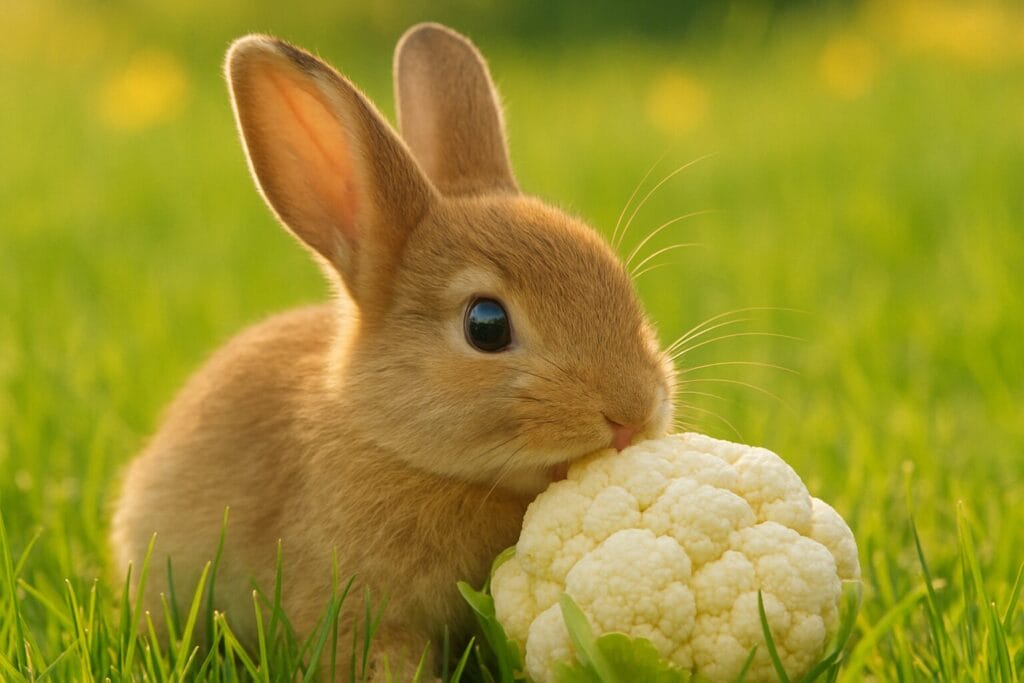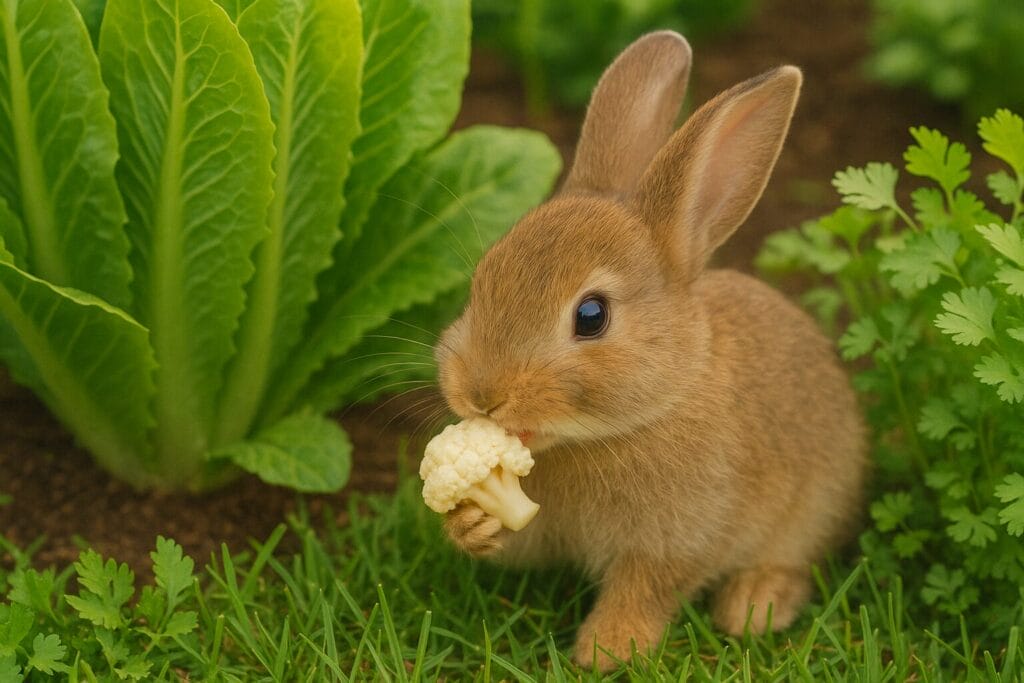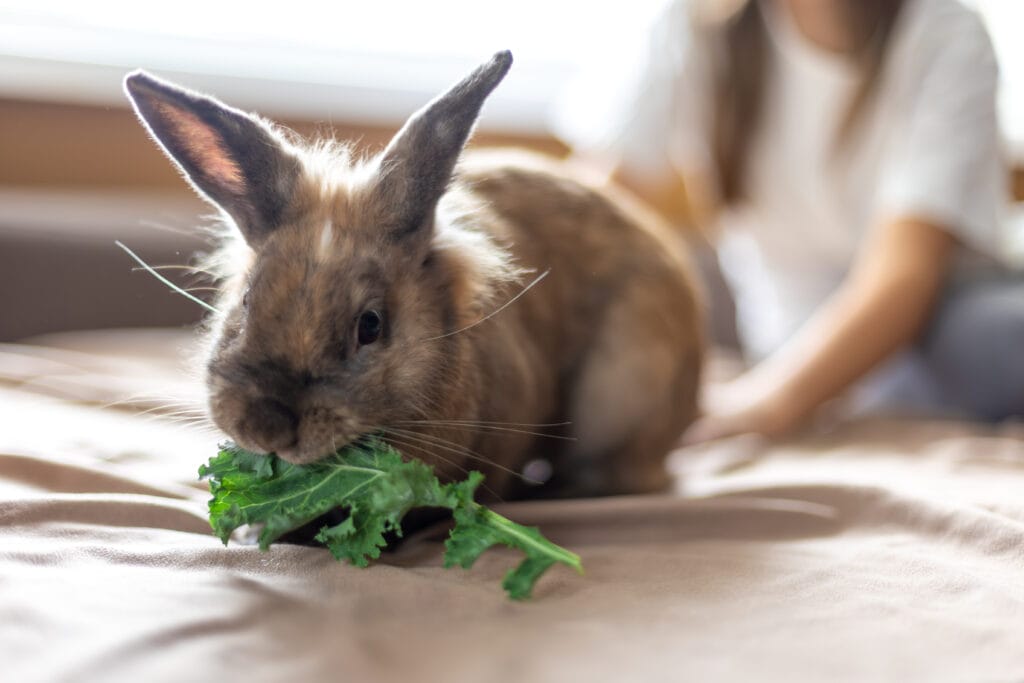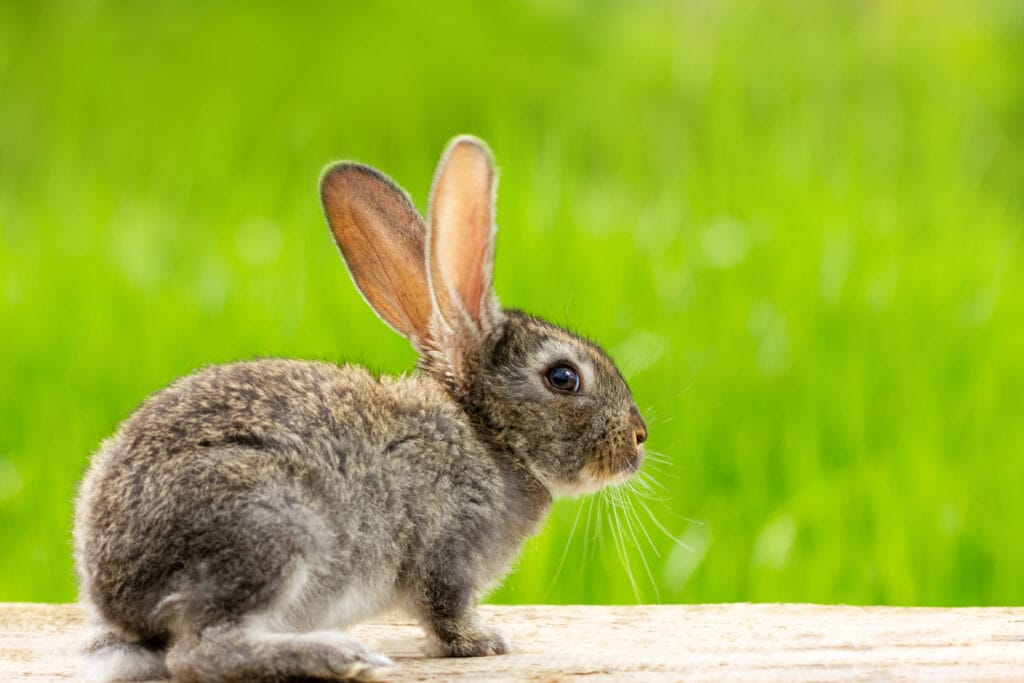Introduction
Rabbit owners often ask, “Can rabbits eat cauliflower?” or “Can bunnies have cauliflower?” These questions arise because bunnies are delicate creatures with specific dietary needs, and choosing the right veggies is key to keeping them healthy and happy. At Tedbun, we’re dedicated to helping bunny parents make informed choices about their pets’ diets. Whether you’re wondering, “Can a rabbit eat cauliflower?” or curious about related veggies like broccoli, this guide will answer all your questions. Let’s explore how cauliflower fits into your bunny’s diet, its benefits, risks, and how to serve it safely!
Rabbits thrive on a diet primarily composed of hay, with fresh vegetables playing a supporting role. Knowing which foods are safe, like whether rabbits can have cauliflower or broccoli, helps you provide variety while keeping your bunny’s tummy content. In this post, we’ll cover everything from nutritional benefits to preparation tips, ensuring your rabbit enjoys cauliflower without any hiccups. Let’s hop right in!
Is Cauliflower Safe for Rabbits?
So, can rabbits eat cauliflower?
The answer is yes
, but only in moderation. Cauliflower is a safe, nutritious vegetable for rabbits when offered as part of a balanced diet. If you’re wondering, “Can bunnies eat cauliflower?” or “Can rabbits have cauliflower?” rest assured that this cruciferous veggie can be a healthy treat. However, because rabbits have sensitive digestive systems, cauliflower should be introduced slowly and given sparingly to avoid issues.
Cauliflower fits into a rabbit’s diet as a supplement to their staple foods: unlimited hay, a small amount of high-quality pellets, and a variety of fresh greens. Questions like “Do rabbits eat cauliflower?” often come up because bunnies love crunchy, leafy veggies. Cauliflower provides that satisfying texture, but it’s not something they should eat daily. Similarly, many owners ask, “Can rabbits eat broccoli?” or “Can rabbits have broccoli?” The answer is also yes, but like cauliflower, broccoli should be fed in small amounts due to its cruciferous nature, which can cause gas if overdone.
When introducing cauliflower, start with a tiny piece and monitor your bunny for any signs of discomfort, such as bloating or changes in stool. If your rabbit handles it well, cauliflower can be a delightful addition to their veggie rotation. Always prioritize variety to keep their diet balanced and their taste buds happy!

Nutritional Benefits of Cauliflower for Rabbits
Cauliflower offers several nutritional benefits that make it a great occasional treat for rabbits. If you’re asking, “Can bunnies eat cauliflower?” or “Can a rabbit eat cauliflower?” you’ll be pleased to know it’s packed with nutrients that support your bunny’s health. Here’s a breakdown of what cauliflower brings to the table:
- Fiber: Cauliflower is rich in fiber, which is essential for maintaining a healthy digestive system. Fiber helps keep food moving through your rabbit’s gut, preventing issues like stasis.
- Vitamin C: Rabbits need vitamin C to boost their immune system, and cauliflower provides a good dose. This helps your bunny stay vibrant and resistant to illness.
- Vitamin K: This nutrient supports blood clotting and overall health, ensuring your rabbit’s body functions smoothly.
- Low Calories: Cauliflower is low in calories, making it a guilt-free treat that won’t contribute to weight gain when fed in moderation.
For those wondering, “Can rabbits eat broccoli?” or “Can bunnies have broccoli?” it’s worth comparing the two. Broccoli shares similar benefits, offering fiber, vitamin C, and vitamin K, but it has a slightly stronger flavor that some rabbits may love or dislike. Both cauliflower and broccoli are cruciferous vegetables, meaning they belong to the same family and have comparable nutritional profiles. However, cauliflower is often milder, making it a gentler option for bunnies with sensitive stomachs.
When considering “Can rabbits eat broccoli stalks?” the answer is yes, but they should be given sparingly, just like cauliflower florets. The key is to offer these veggies as part of a diverse diet, alongside staples like hay and other greens. This ensures your bunny gets a range of nutrients without overloading on any one food.
Potential Risks of Feeding Cauliflower
While it’s clear that rabbits can eat cauliflower and bunnies can have cauliflower, there are risks to watch out for. Cruciferous vegetables like cauliflower and broccoli can cause gas or bloating in rabbits, which can be uncomfortable or even painful due to their sensitive digestive systems. If you’re asking, “Can rabbits have cauliflower?” or “Do rabbits eat cauliflower?” the answer hinges on moderation. Overfeeding cauliflower can lead to digestive upset, so it’s best to limit portions.
The same applies to broccoli-related questions like “Can rabbits eat broccoli?” or “Can rabbits eat broccoli stalks?” Broccoli, like cauliflower, can cause gas if fed in large quantities. The stalks are slightly less likely to cause issues than the florets, but they still need to be given in small amounts. For example, a rabbit that eats too much cauliflower or broccoli might experience soft stools or bloating, which can be a sign to cut back.
To minimize risks, always introduce cauliflower gradually. If you’re wondering, “Can bunnies eat cauliflower?” start with a small piece of floret or leaf and observe your rabbit for 24 hours. Look for signs of discomfort, such as a hunched posture or reduced appetite. If your bunny seems fine, you can include cauliflower in their diet 1-2 times per week. Always wash the vegetable thoroughly to remove pesticides, and avoid feeding cauliflower that’s been cooked with oils, spices, or salt, as these are harmful to rabbits.

How to Feed Cauliflower to Your Bunny
Now that we’ve answered “Can rabbits eat cauliflower?” and “Can bunnies have cauliflower?” let’s talk about how to serve it safely. Proper preparation and portion control are key to making cauliflower a healthy treat. Here’s a step-by-step guide to feeding cauliflower to your rabbit:
- Wash Thoroughly: Rinse the cauliflower under running water to remove dirt, pesticides, or bacteria. Organic cauliflower is ideal if you can get it.
- Chop into Small Pieces: Cut the florets, leaves, or stems into bite-sized pieces. This makes it easier for your bunny to chew and digest.
- Serve Raw or Lightly Steamed: Raw cauliflower is best, as it retains its crunch and nutrients. If your rabbit prefers softer textures (common in younger or older bunnies), you can lightly steam it without additives. Avoid boiling, as it reduces nutritional value.
- Portion Control: Offer 1-2 tablespoons of cauliflower per 2 pounds of your rabbit’s body weight, 1-2 times per week. For example, a 4-pound rabbit can have 2-4 tablespoons total per week.
- Mix with Other Greens: Pair cauliflower with low-gas veggies like romaine lettuce or cilantro to balance the diet and reduce the risk of bloating.
- Monitor Your Bunny: After feeding cauliflower, check for signs of digestive upset. If all is well, you can continue including it in their veggie rotation.
For those asking, “Can rabbits have broccoli?” or “Can bunnies have broccoli?” the same preparation tips apply. Wash and chop broccoli into small pieces, and serve it raw or lightly steamed. Broccoli stalks can be tougher, so chop them finely or steam them to make them easier to eat. Always introduce new veggies one at a time to pinpoint any issues.
Can Rabbits Eat Cauliflower Leaves and Stems?
A common question is, “Can rabbits have cauliflower leaves and stems?” The answer is a resounding yes! In fact, cauliflower leaves and stems are often safer than florets because they’re less likely to cause gas or bloating. If you’re wondering, “Can a rabbit eat cauliflower?” including the leaves and stems, you’ll be happy to know they’re a nutritious, fiber-rich option.
Cauliflower leaves are particularly bunny-friendly. They’re high in fiber and lower in the compounds that cause gas compared to florets. Stems are also safe, though they can be tougher, so chop them into small, manageable pieces. Here’s how to prepare them:
- Wash Well: Like florets, rinse leaves and stems thoroughly to remove any contaminants.
- Chop Finely: Cut leaves into smaller pieces to make them easier to eat. For stems, dice them into tiny chunks or strips.
- Serve Fresh: Offer leaves and stems raw for maximum crunch and nutrition. Steaming is an option for tougher stems, but avoid cooking with any additives.
- Portion Sparingly: Include leaves and stems in the 1-2 tablespoons per 2 pounds of body weight guideline, mixed with other greens.
For comparison, if you’re asking, “Can rabbits eat broccoli stalks?” or “Can rabbits have broccoli?” the leaves and stalks of broccoli are also safe and often better tolerated than the florets. Both cauliflower and broccoli leaves are excellent choices for adding variety to your bunny’s diet without overloading their system.
Alternatives to Cauliflower in Your Rabbit’s Diet
Variety is essential for a healthy rabbit diet, so while rabbits can eat cauliflower and bunnies can have cauliflower, it’s wise to rotate with other safe vegetables. If you’re wondering, “Do rabbits eat cauliflower regularly?” the answer is no—cauliflower should be an occasional treat, not a daily staple. Here are some safe alternatives to mix into your bunny’s veggie lineup:
- Romaine Lettuce: A low-gas, hydrating option that’s gentle on bunny tummies. Avoid iceberg lettuce, as it lacks nutrients and can cause diarrhea.
- Cilantro: A flavorful herb that most rabbits love, packed with vitamins and safe for regular feeding.
- Carrot Tops: The leafy greens from carrots are nutrient-rich and a great alternative to cauliflower.
- Bell Peppers: Red, yellow, or green (avoid spicy varieties) add color and crunch to your bunny’s diet.
- Parsley: Another herb that’s safe and loved by many rabbits, offering vitamins and antioxidants.
For those asking, “Can rabbits eat broccoli?” or “Can bunnies have broccoli?” broccoli is a good alternative to cauliflower, but like cauliflower, it should be fed sparingly due to its potential to cause gas. Broccoli stalks, as noted in “Can rabbits eat broccoli stalks?” are safe but should be chopped finely and given in small amounts.
On the flip side, some veggies are unsafe for rabbits. Avoid feeding:
- Iceberg Lettuce: Low in nutrients and can cause digestive issues.
- Onions: Toxic to rabbits and can damage red blood cells.
- Potatoes: High in starch and unsafe for bunnies.
- Rhubarb: Contains compounds that are toxic to rabbits.
Rotating safe veggies ensures your bunny gets a balanced diet while keeping mealtime exciting. If you’re curious about other foods, check out Tedbun’s guides for more rabbit-safe options!
FAQs
Here are answers to common questions about feeding cauliflower and related veggies to rabbits, incorporating all semantic keywords for SEO:
- Can rabbits eat cauliflower daily? No, cauliflower should be given 1-2 times per week in small portions (1-2 tablespoons per 2 pounds of body weight) to avoid gas or bloating.
- Can bunnies have cauliflower? Absolutely, bunnies can have cauliflower, especially the leaves and stems, which are less likely to cause digestive issues.
- Can bunnies eat cauliflower? Yes, bunnies can eat cauliflower, but introduce it slowly and stick to small amounts to keep their tummies happy.
- Can rabbits eat broccoli? Yes, rabbits can eat broccoli, but like cauliflower, it should be fed sparingly to prevent gas.
- Do rabbits eat cauliflower? Many rabbits enjoy cauliflower, but it’s not a staple food. Offer it as a treat alongside hay and other greens.
- Can rabbits eat broccoli stalks? Yes, broccoli stalks are safe for rabbits, but chop them finely and feed in moderation to avoid digestive upset.
- Can rabbits have cauliflower? Rabbits can have cauliflower, including florets, leaves, and stems, as long as it’s given in small, controlled portions.
- Can rabbits have broccoli? Rabbits can have broccoli, but limit it to small amounts (similar to cauliflower) to keep their digestion smooth.
- Can a rabbit eat cauliflower? Yes, a rabbit can eat cauliflower, but always start with a small piece and monitor for any adverse reactions.
- Can bunnies have broccoli? Bunnies can have broccoli, but it’s best as an occasional treat, paired with low-gas veggies like romaine lettuce.
If you have more questions about your bunny’s diet, consult a rabbit-savvy veterinarian for personalized advice.
Conclusion
Cauliflower can be a tasty, nutritious treat for your rabbit when fed in moderation. Whether you’re asking, “Can rabbits eat cauliflower?” “Can bunnies have cauliflower?” or “Can a rabbit eat cauliflower?” the answer is yes, but it’s all about balance. Offer small portions of florets, leaves, or stems 1-2 times per week, and rotate with other safe veggies like romaine lettuce or cilantro. For those wondering, “Can rabbits eat broccoli?” or “Can rabbits have broccoli?” the same rules apply—moderation is key to avoiding digestive issues.
Always prioritize hay as the foundation of your bunny’s diet, and introduce new foods like cauliflower or broccoli slowly to ensure they agree with your rabbit’s system. If you’re unsure about any food, reach out to a vet for guidance. At Tedbun, we’re here to help you keep your bunny hopping with joy! Share your bunny’s favorite veggie in the comments below, or check out our other guides for more tips on rabbit care.
credit : Fizza Batool


